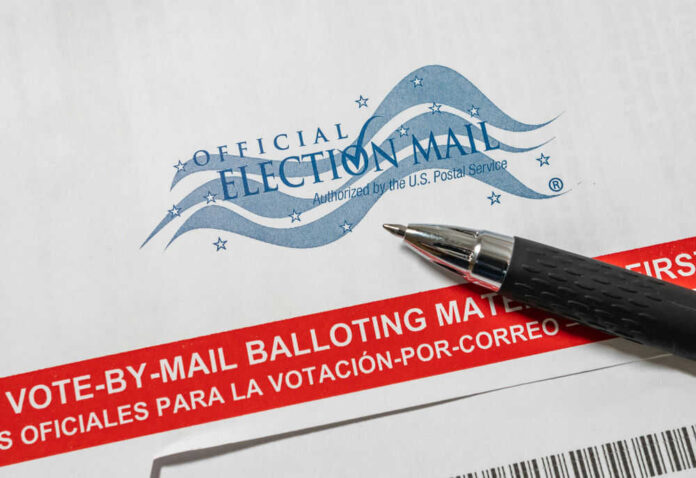
The Supreme Court will finally address a critical election integrity issue that has plagued America since the pandemic era, agreeing to decide whether states can count mail-in ballots received after Election Day.
Story Highlights
- Supreme Court takes up Republican-led lawsuit challenging post-Election Day ballot counting in 15 states.
- RNC argues federal law requires all ballots to be received by Election Day, not just postmarked.
- The conservative 5th Circuit already ruled that Mississippi’s five-day extension violates federal law.
- The decision could impact election laws nationwide and restore constitutional election timing.
Court Tackles Election Integrity Concerns
The Supreme Court announced Monday it will hear the Republican National Committee’s challenge to Mississippi’s pandemic-era law allowing mail ballots to arrive up to five days after Election Day.
The case represents a crucial test of election integrity principles that conservatives have championed since the chaotic 2020 election cycle.
Fifteen states currently permit regular mail ballots to be accepted after Election Day, creating a patchwork of conflicting standards that undermines uniform election administration across America.
Supreme Court to weigh mail-in ballots arriving after Election Dayhttps://t.co/ZleeypSuUZ pic.twitter.com/G0KU0fC5hD
— The Washington Times (@WashTimes) November 10, 2025
Federal Law vs. State Flexibility Debate
The RNC’s core argument centers on federal law establishing a fixed election date, contending that accepting ballots after this deadline violates congressional authority over elections.
Their written arguments emphasize that historically, states required ballot receipt by Election Day with rare exceptions. Mississippi officials counter that voters fulfill their obligation by casting ballots before the deadline, regardless of postal delivery timing.
This fundamental disagreement highlights the tension between ensuring voter access and maintaining clear, constitutionally-mandated election deadlines.
Conservative Circuit Court Victory Sets Precedent
The conservative 5th Circuit Court of Appeals already sided with Republicans in 2024, ruling that Mississippi’s ballot extension violates federal law. However, the court strategically avoided disrupting the 2024 presidential election by declining to immediately block the policy.
This measured approach allowed the legal challenge to proceed without creating last-minute electoral chaos, demonstrating judicial restraint while affirming constitutional principles. The ruling provides strong precedent for the Supreme Court’s consideration of this nationwide issue.
Broader Election Law Reform Movement
This case represents part of a broader conservative push to restore election integrity standards that were compromised during the pandemic.
The Supreme Court is simultaneously considering multiple voting-related cases, including challenges to Voting Rights Act redistricting requirements and similar post-Election Day ballot counting policies in other states.
The conservative supermajority has signaled skepticism toward expanded voting accommodations that deviate from traditional constitutional frameworks.
These cases collectively offer an opportunity to establish clear, nationwide standards that prioritize election security and constitutional adherence over administrative convenience.



















